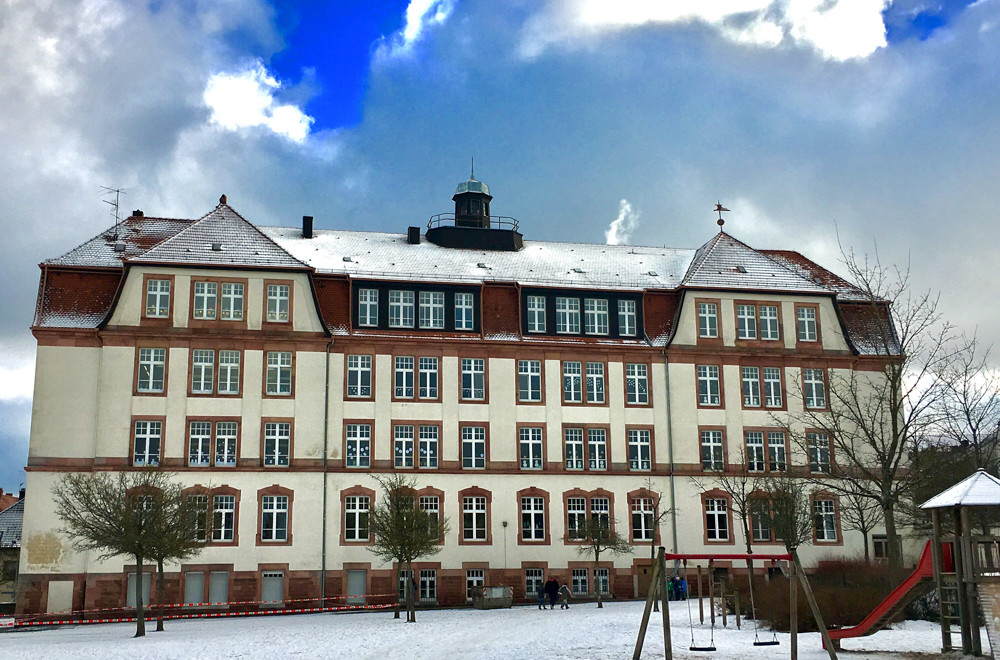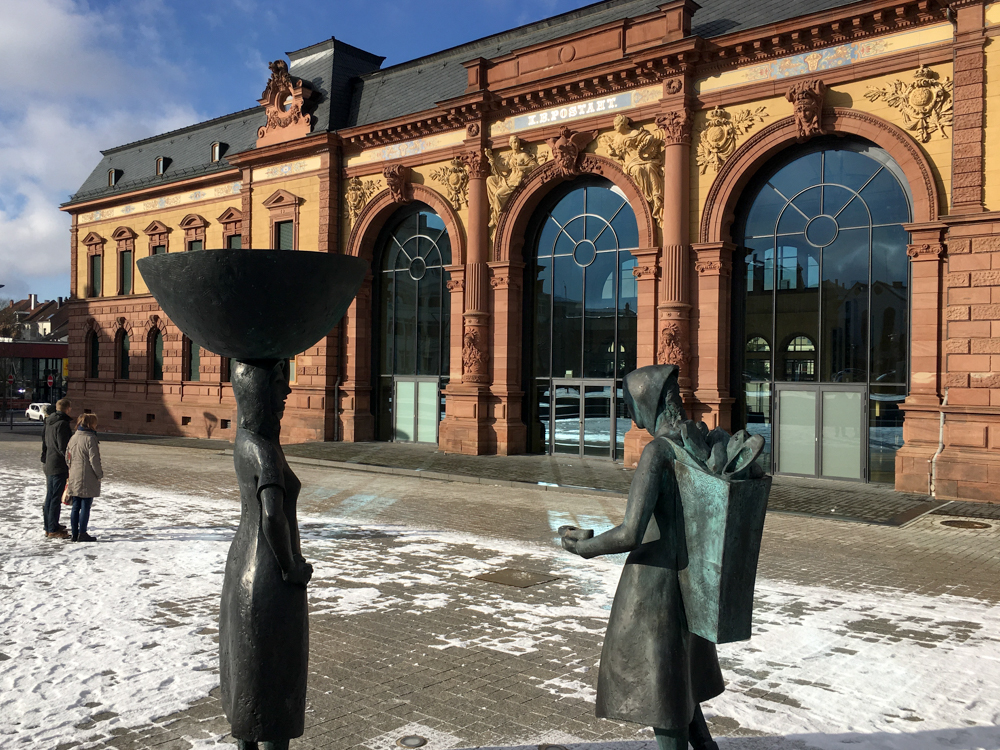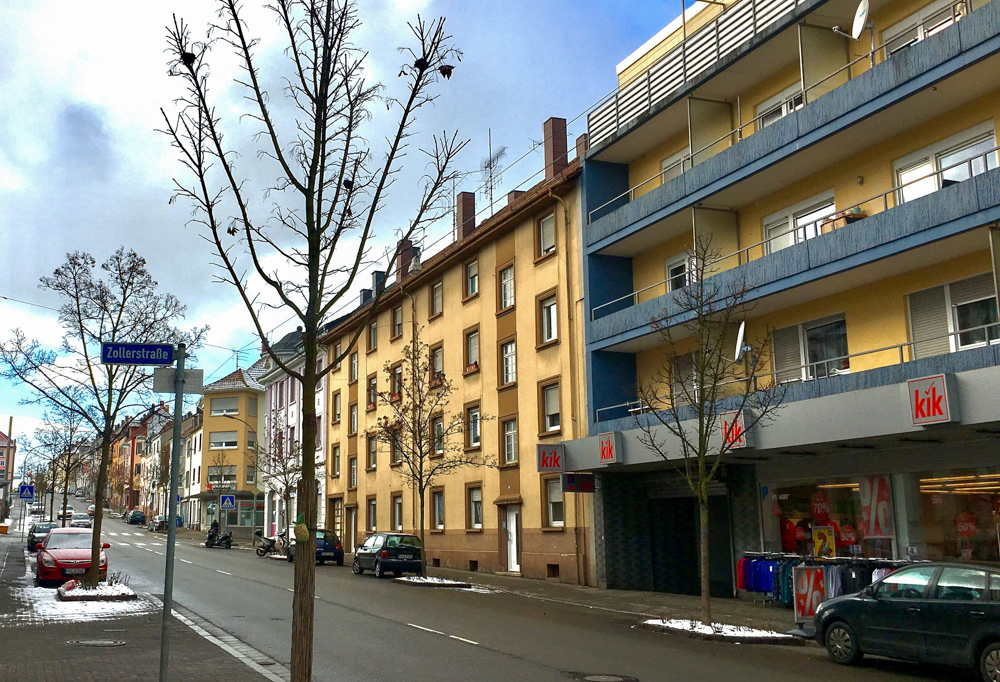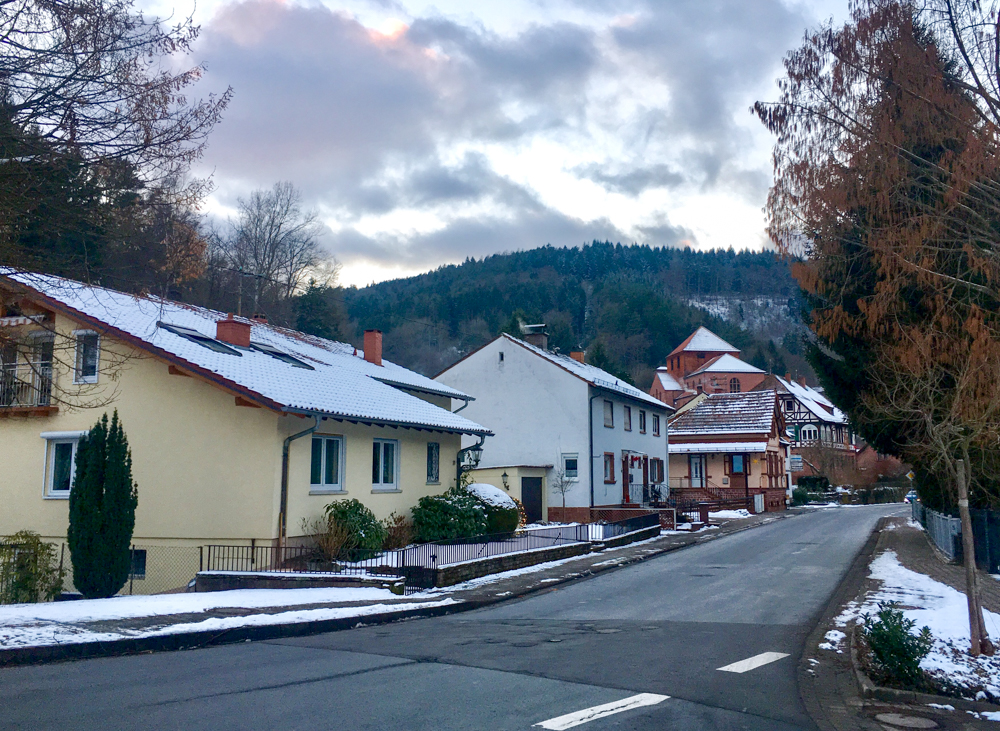When Recollection and Reality Collide

Pirmasens was nothing like the images I’d conjured from my grandfather’s tales.
He would close his eyes and his kitchen would fall silent as he breathed the memory of his childhood home. The rolling hills. The vineyards. And the shoe factories he so fondly admired. When they opened, his eyes would twinkle with a fresh spark. An affection for a place I imagined as a quaint, bustling metropolis set in the beauty of a pine forest.
So I was filled with disappointment at the bland 1950’s façades lining the disorganised mess of streets. The shoe factories he had spoken of so fondly, stood cold and redundant among them. Some repurposed into offices or hotels, but many abandoned in a sad testament to a place that hadn’t moved with the times.
The emptiness continued, broken only by the charming Neo-Gothic post office, haphazard and out of place. Although Pirmasens dated back to 860 AD and bragged Germany’s oldest shoe factory, the Allied World War II bombing campaigns had reduced it to rubble. The few buildings to survive now floated in a sea of post-war gloom.
Pirmasens Neo-Gothic Post Office
“[We] entered Pirmasens . . . and saw the devastating effects of Allied aerial bombing. The town of perhaps fifty thousand was practically levelled. I for one was not ashamed to feel the same deep sorrow . . . I had felt on seeing our dead GIs, and for that matter the young teenage dead German soldiers.”- American Eye-witness (source: http://www.revisionist.net)
My grandfather had never spoken of the war . . . and I had never asked. My interest overshadowed by a reluctance to stir traumatic memories, I figured he’d talk in his own time. There would always be tomorrow. But as I stared at an ugly storefront where his home had once stood, I was touched with sadness. He never had spoken about it . . . at least not to me.
My great-cousin’s voice interrupted my thoughts. The family hadn’t been around when their home was flattened. On the imminent arrival of US troops, my great-grandfather had packed them up and left. The decision made by midday, they set out on foot, taking only what they could carry and disappearing into the forest. When they returned, a year later, they came back to the same street, albeit with a very different outlook.
Seventy years on, I stood on that street trying, impossibly, to put myself in their shoes. My head throbbed with the unfathomable. Where do you go? When everyone’s in the same state of desperation, where do you stay? And work? What do you eat? And when you return – where do you live when everything has been reduced to nothing? Everything you worked for? Everything anyone ever worked for, swallowed, in a sea of debris? Did they just find a half-liveable building and move in?
The Streets of Pirmasens
My questions remained unanswered. I was left only with the knowledge that they simply had moved on.
History evokes great sorrow. But beyond the credits of popular movies I’d never considered how the ordinary people had rebuilt their lives. And while I sometimes wondered where the heinous war criminals had disappeared to after the war, I hadn’t given a second thought to the German civilians. I hadn’t even considered that my own family had been among them.
The oppression dissolved behind us and the road furled out like a ribbon into the forest ahead. The same road my family had walked, all those years ago. A mum, a dad and a little boy – trudging, hopefully into the unknown.
By the time we arrived in the tiny village of Elmstein, the sun had slipped down behind the hills. Snow covered the forest floor and the cold bit into my legs. I shivered, imagining what would have faced me, arriving on foot with nothing but hope, and the clothes on my back.
Elmstein
It wasn’t clear why they’d chosen Elmstein. Or if they’d had a place to stay. Perhaps my grandfather remembered, or perhaps he’d been too young. Either way it was immaterial. My grandfather passed away just three months earlier and we were left with only the images my cousin could piece together from his tales. The tales he had told in the hope that some day I would visit and see for myself.
And perhaps those were the only images worth remembering.




Love it. The author draws you into the events that transpired so much so that you feel alone when it ends….
Thanks Francois, what a lovely compliment. There was a very lonely feeling at the end of that day.
Kate, memories are a powerful thing, Opa would be so proud of you.
Thanks Christa. He’s always in our thoughts . . . especially when we’re in Germany!